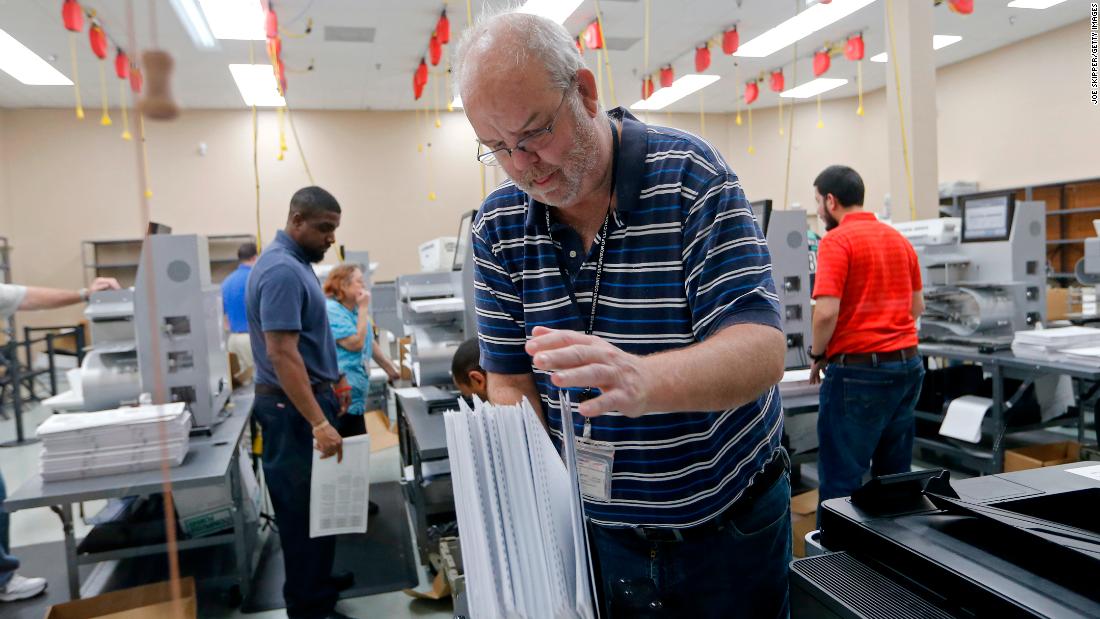[ad_1]
The reality is, well, far from that.
Here’s the thing: While the races for governor and, especially, Senate are quite close, the most likely outcome — by far — is that the Republican candidates who are leading now will wind up winning.
The difficulty in seeing this forest through the trees of drama is based on this reality: The margins in both races are very small but only as compared to the raw number of votes cast. In terms of the sorts of historical margins that we’ve seen recounts — automatic or manual — flip, these margins are nowhere near small enough to expect that outcome.
Let’s go over the numbers first.
In the Senate race, Gov. Rick Scott (R) has 4,097,689 votes as compared to Sen. Bill Nelson’s (D) 4,085,086. That’s a margin for Scott of 12,603 votes. In the governor’s race, former Rep. Ron DeSantis (R) has 4,075,445 votes while Tallahassee Mayor Andrew Gillum has 4,041,762. That’s a 33,683-vote lead for DeSantis. Scott’s margin amounts to 0.15% of all the votes cast (8,183,652) while DeSantis’ edge is 0.41% of the 8,118,074 ballots cast in the governor’s race.
Which is a SUPER SMALL margin.
But the vote gaps in the two races — 12,000 and 33,000 — are massive when you consider the history of modern recounts.
The most recent hugely high-profile recount happened a decade ago in Minnesota between Republican Sen. Norm Coleman and Democratic challenger Al Franken. The state canvassing board showed Coleman with a 206-vote lead. A recount was triggered. Almost two months later — in January 2009 — Franken had the lead by 225 votes. After a HUGE amount of legal wrangling, Franken’s final margin was finalized at 312 votes. From the beginning to the end of the process, the vote changed by 518 votes in Franken’s favor. That was 0.01% of the 2,862,451 votes cast.
Four years earlier, the Washington state governor’s race ended in a virtual tie between Christine Gregoire, a Democrat, and Republican Dino Rossi. Rossi was originally named the winner by a margin of 261 votes. A mandated machine recount narrowed Rossi’s lead to 42 votes. Gregoire, with the help of a number of national Democrats who raised money for her, funded — via the state party — a manual recount. The manual recount ended 58 days after the election, and gave Gregoire a 129-vote final margin over Rossi. The total votes changed by the series of manual and automatic recounts was 390 total votes, or 0.01% of all ballots cast.
“According to a FairVote database of statewide recounts from 2000 to 2015, the average recount moves the margin by 0.02 points. Nelson needs the margin to move by nearly eight times as much. … In terms of pure votes, it doesn’t look any better for Nelson. The average recount from 2000 to 2015 shifted the result by 282 votes. You don’t need to be a math wizard to know that 282 is considerably less than 12,000. The maximum change in the margin in any recount from 2000 to 2015 was 1,247 votes.”
Those facts — and the long history of recounts changing only races in which the original count was extremely narrow — get lost in the coverage of the various suits and countersuits both sides are lobbing at each other. President Donald Trump has added to the confusion by repeatedly insisting via Twitter that there is something nefarious going on in the state’s MANDATED recount.
Now. History is only predictive until it’s not. Senate Minority Leader Chuck Schumer, for one, seems to believe that Nelson will buck history. “When all the votes are counted in Florida, we could be just where we started at the beginning of the 115th Congress, with 48 members, even facing the worst map that we’ve ever had,” the New York Democrat insisted.
Maybe! But a victory by Nelson or Gillum, given the margins they are trailing by, would be hugely out of step with what most recounts — manual or machine — produce.
[ad_2]
Source link

